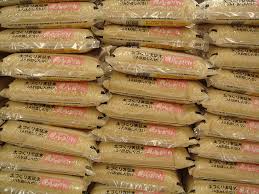The Growth Enhancement Support scheme will create 8.7 million jobs and earn rural farmers N289 billion in 2013, Ibrahim Abdullahi, the Managing Director, Maslaha Seeds Limited, has said.
Abdullahi said this in an interview with the News Agency of Nigeria in Abuja on Tuesday.
According to him, the scheme will not only create jobs and increase the livelihood of farmers but has already increased the production of seeds companies from 1,500 tonnes to 5,000 tonnes.
He said: “In seeds production, we normally engage out-growers.
“Out-growers are farmers carefully selected and trained on seeds production by the seeds companies to produce certified seeds.
“Before this programme, we used to produce between 1,500 tonnes to 2,000 tonnes of seeds per annum but with this programme, we have increased our production to 5,000 tonnes.
“So we employed more out-growers.
“So many people were employed because when you produce the seeds from the farm, you load the seeds to the collection centre and you offload it there.
“From the collection centre, you load again to the seeds factory and then you put it in the stores.
“Fom the stores, you load it again to the factory for processing and after processing, you now load it to the warehouses.
“From warehouses, you load it again to supply the respective states and redemption centres.
“So, you discover one bag of seeds employs about eight to 10 people.
“For 2013 GES, this programme is expected to distribute 54,000 tonnes of maize seeds and 34,000 tonnes of rice seeds.
“For the maize, it amounts to 602,000 bags and each bag employs eight people.
“So the 602,000 bags will employ 4.82 million people.
“There is no sector in this country that employs people like this.
“To take the seeds from the farmers to the factory and process it and to start distributing for this 2013, we are expected to employ 4.8 million people just for seeds handling for maize.
“And for rice, we are going to employ 3.8 million people.
“So if you put these together, we are talking about 8.7 million people.”
Abdullahi, however, observed that farmers would have increased yield, if they adopted the best agronomic practices in planting the improved seeds given to them by the government and applying the right quantity of fertiliser.
He said: “Fertiliser is also given to the farmers in the required quantity.
“So we are expecting that these farmers will use the best agronomic practises of using improved seeds and the right quantity of fertiliser.
“The average yield for farmers in Nigeria is 1.2 tonnes per hectare but with this programme, we are expecting an increase of 1.3 tonnes on the average.
“On the low side, we are expecting that farmers will get at least 2.5 tonnes to three tonnes per hectare, which amounts to 1.3 tonnes increase from what they used to have.
“When we looked at the maize seeds for this 2013, about 2.738 million hectares will be planted and if you take a yield increase of 1.3 tonnes per hectare, what farmers are going to get is 3,560,000 tonnes.
“If you convert this into monetary terms, you are talking about N234 billion.
“When you take the rice, we are expecting that we are going to plant 497,000 hectares.
“That amounts to 646,000 tonne yield increase and when you convert that to money, you are talking about N54 billion.
“If you put these two together you are talking about N289 billion going to the farmers pocket for just 2013.”
The managing director explained that his organisation had been able to pay the wages and salaries of its employees through the Public-Private-Partnership with the government.
He said that the scheme had created a huge market for his company, adding that he had been involved in subsidy programmes in the past but none had been fruitful.
According to Abdullahi, there are some little challenges but the government is working hard to address those issues.
He urged the Federal Government to assist seeds companies in accessing long-term loans.
“What we are getting now is short-term loans that we repay after four to six months of seeds production,” he said.
Abdullahi stressed that long-term loans were needed for the growth and development of the seeds sector.
Previous ArticlePlateau United markets players abroad, opens business office
Next Article NSC DG, NFF boss to watch Eagles


